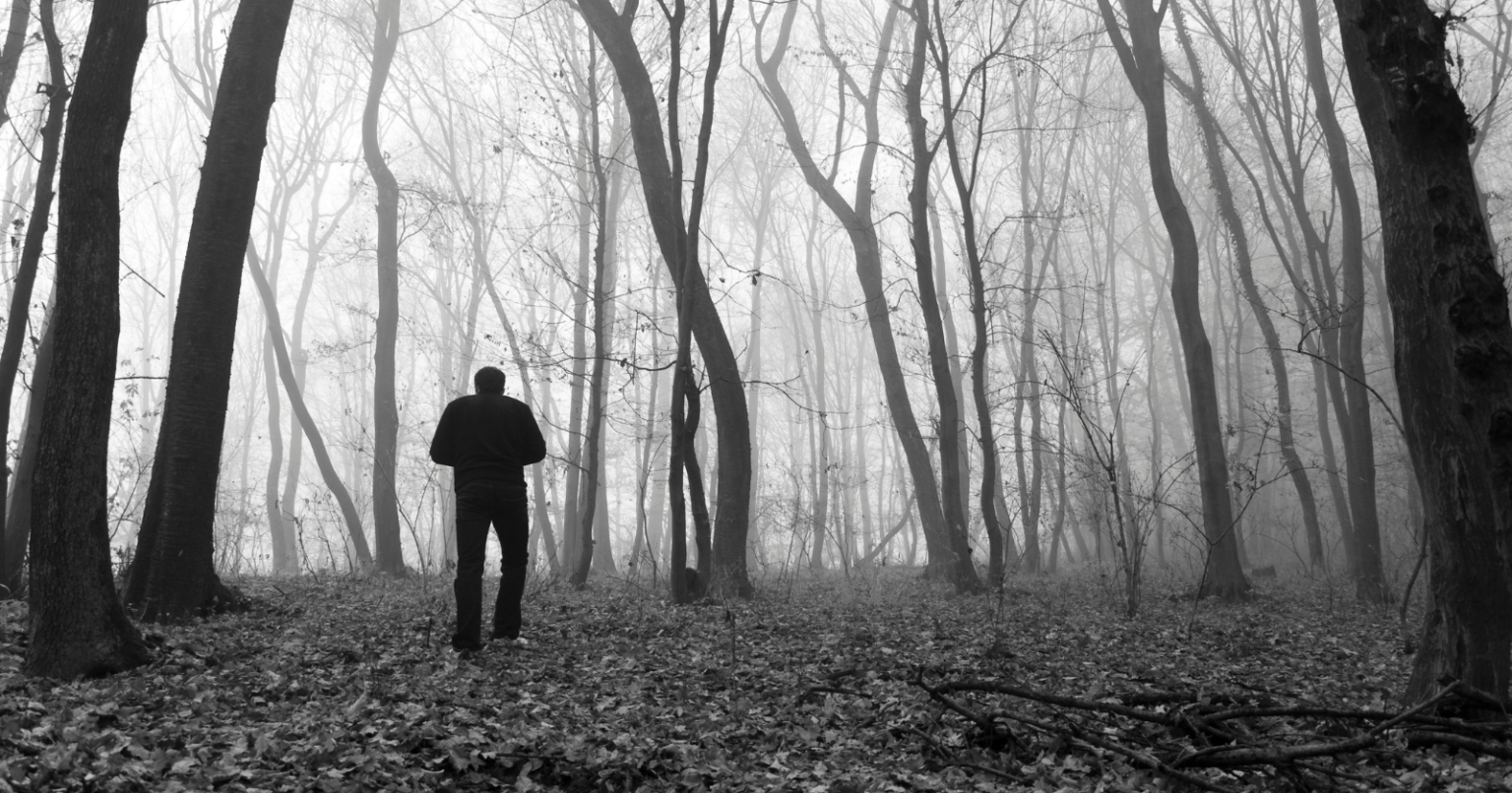Have you ever found yourself knee-deep in self-help books, tediously writing out all your “core values,” only to feel more disconnected than ever?
It’s ironic that in our modern rush to discover who we “truly are,” we often end up spinning in circles. In my own spiritual journey, I’ve lost count of the times I thought I had “found” myself—only to realize, weeks later, I was chasing a mirage.
The truth is, while the intention behind “finding yourself” may be pure, the beliefs many of us cling to can push us further into confusion.
I’ve spent years guiding people through sacred forests and across mountain ranges to help them break free from the illusions that imprison their sense of self. And yet, time and again, I see the same common traps. They’re so subtle we don’t even notice the ground crumbling beneath us.
Today, I want to tear down five of the biggest (and most misleading) beliefs about “finding yourself” so we can all step into a more authentic, grounded sense of being.
Because if there’s one thing I’ve learned, it’s that the path to clarity often starts with the bold act of calling out what’s clouding our vision.
1) The belief that you must define yourself once and for all
I’ve lost track of how many times I’ve met people sweating over personality tests, natal charts, and neat little identity boxes. They’re determined to hold up a sign that reads, “I am a free spirit,” “I am an introvert,” or “I am a shamanic traveler with a side of cosmic consciousness.”
The idea is that if we can just pin ourselves down with the right definitions, we’ll finally rest easy.
But here’s the problem: life isn’t static, and we’re not collectible action figures with one superpower stamped on our chests.
Alan Watts once said, “Trying to define yourself is like trying to bite your own teeth.” That quote has stuck with me for years.
The more we try to lock ourselves into a neat self-description, the more we create the illusion of a stable “me” that can be possessed.
But we’re constantly in flux. It’s not that introspection is bad—I value introspection deeply—but we should be wary of insisting on nailing ourselves down.
The real magic happens when we dance with that fluidity, embracing the changes instead of anxiously trying to contain them.
2) The belief that there’s a single eureka moment
We’ve all heard the legendary stories: the Buddha sitting under a tree, Jesus wandering the desert, a mystic climbing a mountain and returning with all the answers.
It’s tempting to think that “finding yourself” happens in one grand cosmic explosion—a moment so brilliant it outshines every confusion that came before it.
After years of encounters with seekers, though, I’ve seen the flipside: those who endlessly wait for that “perfect” moment of realization. They sit around, ironically feeling more lost because their real lives never seem dramatic enough to qualify as spiritual epiphany.
Now, don’t get me wrong—powerful moments of insight absolutely exist. I’ve felt the ground quake under my feet when I least expected it, in the thick of the jungle or while biking across new landscapes.
But here’s the truth: even after a goosebump-raising awakening, you still have to get up the next morning, brew your coffee (or tea, if you’re like me), and find meaning in the mundane.
When we idolize that single moment, we end up dismissing the day-to-day micro-awakenings that form the bulk of real spiritual growth. It’s the process, not the fireworks, that shapes who we become.
3) The belief that you should seek total escape from your current reality
Ever get the itch to pack up, head to Bali, and drink coconut water until your real problems disappear? There’s a widespread myth that once you land in some exotic locale—or bury yourself in a bohemian hideout—you’ll magically align with your “true essence.”
I’ve made my fair share of pilgrimages, so trust me, I understand the allure. But the danger is believing that physical relocation alone can solve an internal disorientation.
Slavoj Žižek once remarked, “Words are never ‘only words’; they matter because they define the contours of what we can do.” In this context, if you keep telling yourself that your salvation lies somewhere “out there,” you reinforce a mental framework that says “here” is never good enough.
And that’s what truly keeps you stuck.
The problem isn’t the plane ticket or the jungle retreat; it’s the assumption that your deepest liberation can only happen by fleeing your current environment. The real challenge is learning how to face yourself wherever you are—city apartment, remote farm, or yes, even a beach in Bali—without needing to blame the scenery for your restlessness.
4) The belief that self-discovery is all about positivity
There’s an unspoken assumption, especially in mainstream personal development, that finding yourself is a sugar-sweet journey filled with daily affirmations and happy tears of relief.
It’s as if anything dark, gritty, or downright painful can’t possibly be part of discovering who we are. But I’ve seen how much growth comes when we actually dare to dive into our mess—our anger, shame, fear, and all the hidden skeletons we barely acknowledge.
Sometimes, your darkest secrets shine a truer light on who you are than any journaling session about your “best qualities.”
That’s where compassion for ourselves truly matters. I’ve guided people through intense emotional clearings, and time and again they realize the parts of themselves they’d labeled “bad” were actually vital teachers.
Denying our shadows doesn’t make them disappear; it only blinds us. So, yes, talk about your dreams and strengths—celebrate them! But don’t rob yourself of the jagged edges that actually build depth.
True self-discovery is a mosaic of both the luminous and the raw, the achievements and the heartbreaks.
5) The belief that you must do it alone
There’s a deep romance to the idea of the solitary seeker.
We picture ourselves strolling barefoot along forest paths, meditating in sunlit clearings, writing revelations in a leather-bound notebook as squirrels curiously watch from the branches.
While solitude is powerful—I spend a lot of time alone in nature myself—believing you must go it alone can sever you from the very web of community that can anchor you in reality. We’re relational creatures. Sometimes, another person’s perspective is the key that unlocks your own blind spots.
I’m not suggesting we trade quiet reflection for endless external validation. Instead, I’m a big believer in balanced connection: being open enough to let a friend, mentor, or partner challenge your blind spots, while still trusting your inner compass.
Sometimes, we need to speak our confusion out loud to another human being before we realize what’s actually going on.
Authentic connection isn’t a distraction—it’s a potent tool for clarity. When we stop banishing ourselves to the margins of our social circles under the banner of self-discovery, we can finally see the bigger picture of who we truly are.
Conclusion
Here at The Vessel, I’ve seen too many people approach me with tight fists, determined to wrestle their soul into a single, definitive box labeled “me.”
But the more we cling to these misleading beliefs—pinning ourselves down, waiting for lightning-bolt revelations, insisting on a fresh location, sugarcoating our shadows, or going it all alone—the more we discover a chilling sense of emptiness.
It turns out our frantic obsession with “finding ourselves” can be exactly what pushes us away from true self-awareness.
Of course, I’m not here to criticize the sincere desire for personal clarity. I believe deeply in introspection, in conscious living, and in deliberate transformation. Yet I also know how liberating it feels to loosen the grip on those rigid beliefs.
After all, maybe the greatest realization is that you aren’t something to be found—but an evolving, breathing presence that can’t be caged or pinned down. And once we embrace that, we discover that the only real magic is in being alive, right now, exactly where we stand.







